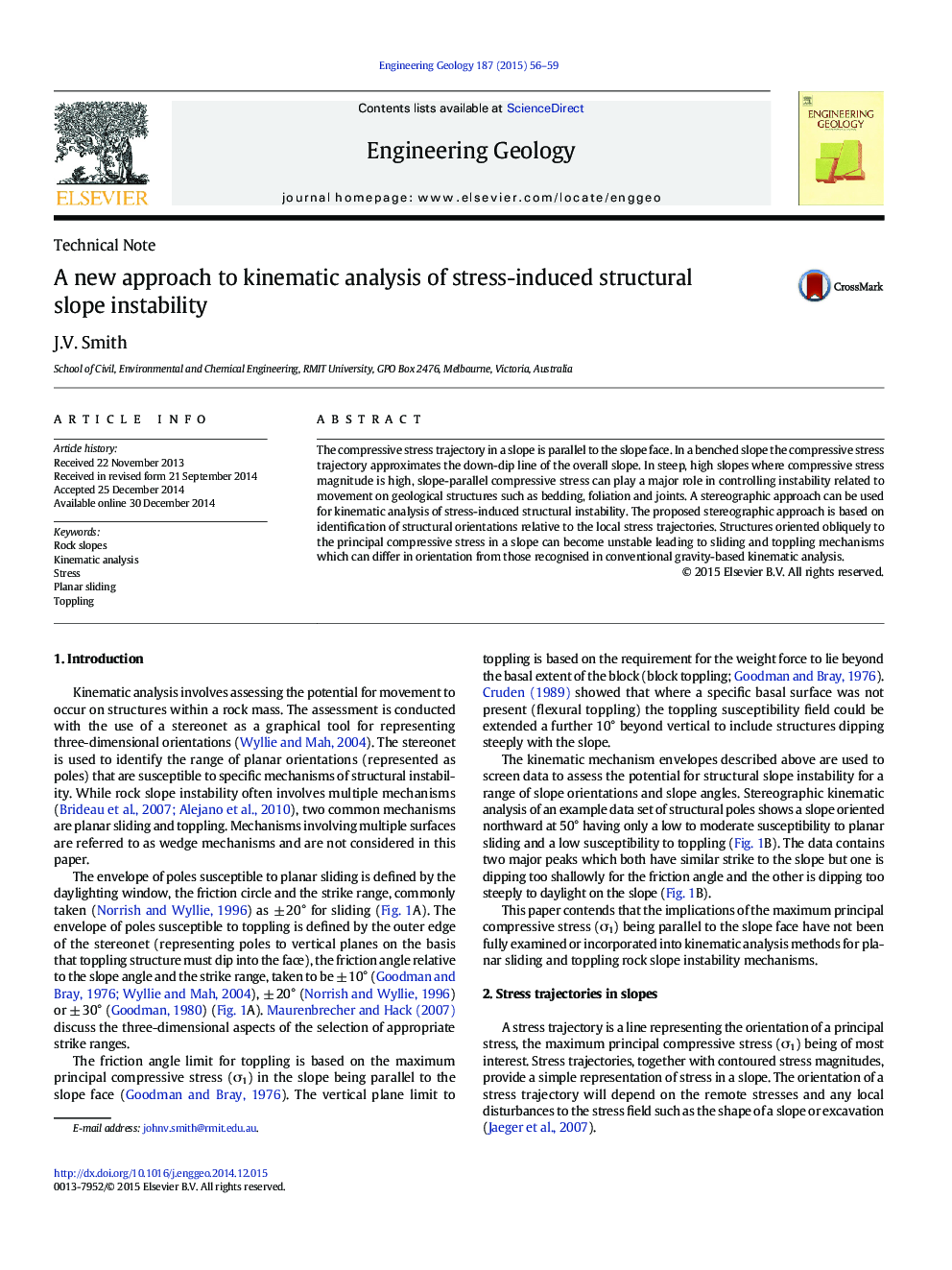| Article ID | Journal | Published Year | Pages | File Type |
|---|---|---|---|---|
| 4743403 | Engineering Geology | 2015 | 4 Pages |
•The compressive stress trajectory in a slope is parallel to the slope face.•The compressive stress trajectory approximates the overall slope of benched slopes.•Stereographic approach used for kinematic analysis of stress-induced instability•Structural orientations with stress-induced instability can differ from conventional kinematic analysis.
The compressive stress trajectory in a slope is parallel to the slope face. In a benched slope the compressive stress trajectory approximates the down-dip line of the overall slope. In steep, high slopes where compressive stress magnitude is high, slope-parallel compressive stress can play a major role in controlling instability related to movement on geological structures such as bedding, foliation and joints. A stereographic approach can be used for kinematic analysis of stress-induced structural instability. The proposed stereographic approach is based on identification of structural orientations relative to the local stress trajectories. Structures oriented obliquely to the principal compressive stress in a slope can become unstable leading to sliding and toppling mechanisms which can differ in orientation from those recognised in conventional gravity-based kinematic analysis.
